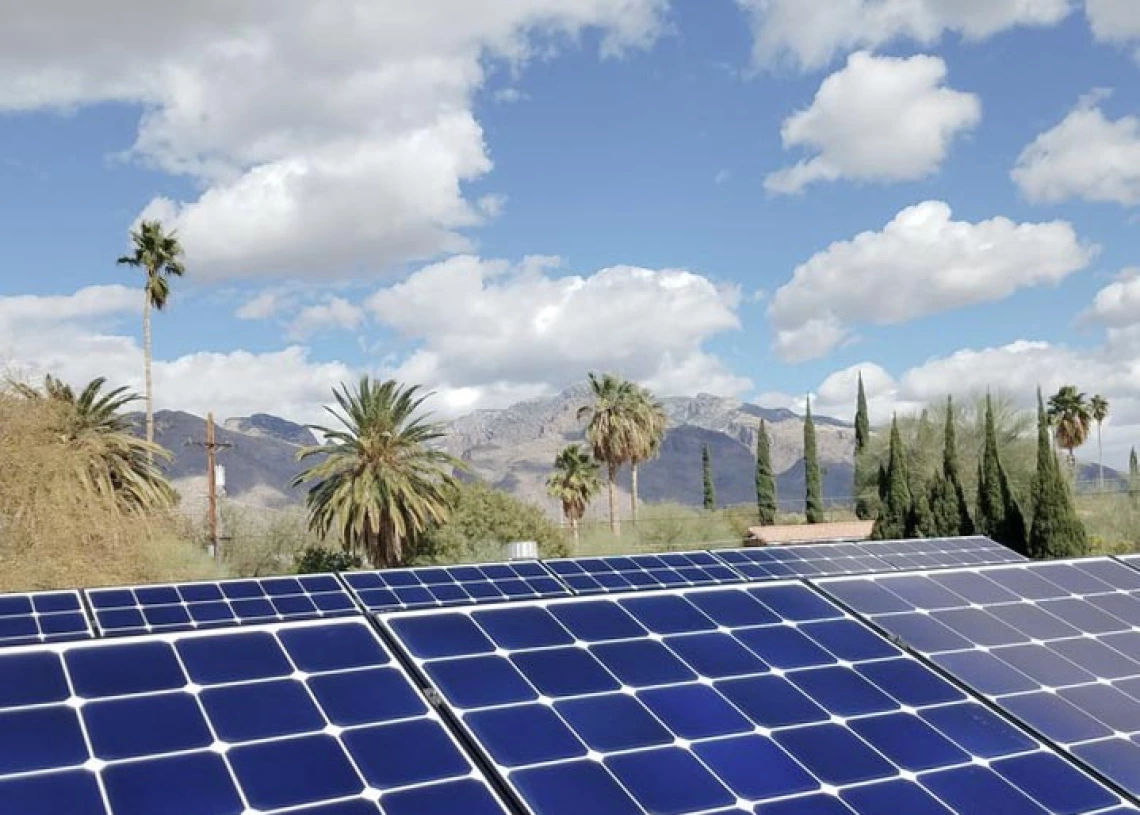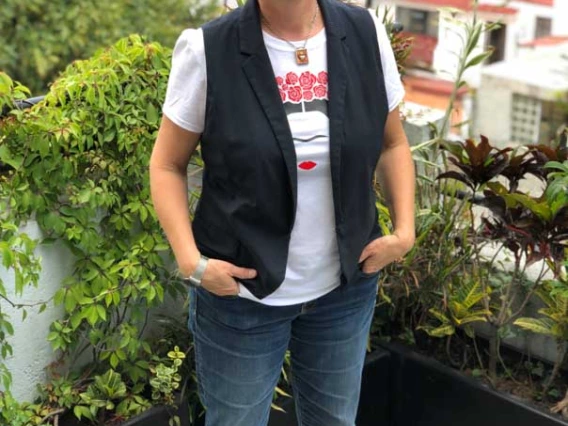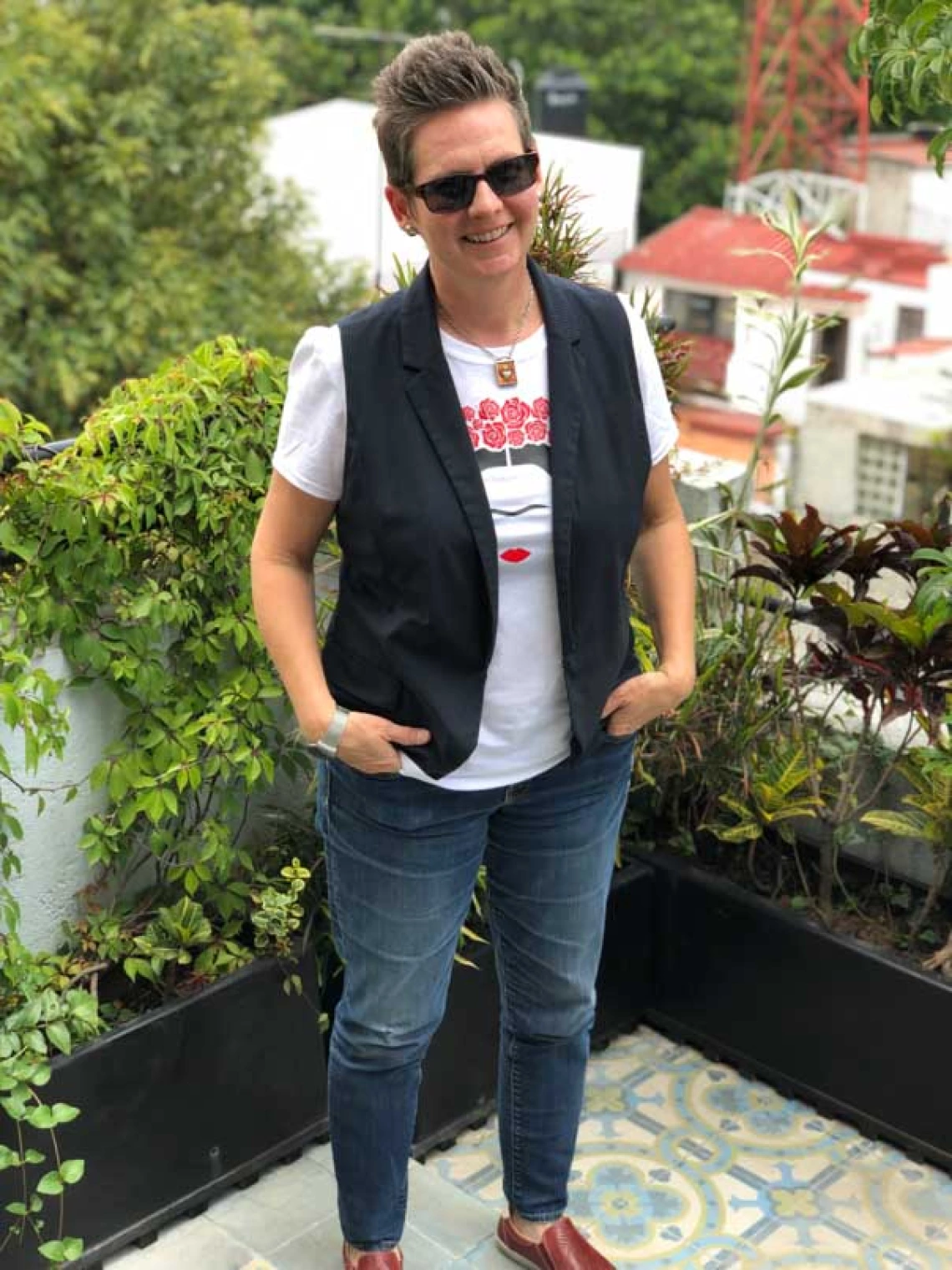The Haury Program Announces Its 2019 Spring Competitive Grant Cycle Awards

The Agnese Nelms Haury Program in Environment and Social Justice (Haury Program) is pleased to announce its Spring 2019 awards. Reviewers selected two community-based seed projects by strong University of Arizona (UA)-community teams focused on finding adaptations and solutions to health impacts that are increasing as the climate warms. Reviewers also selected two faculty fellows to expand their work in social justice and environment embedded in community.
Seed Grants
The Haury Program awards two to four seed charitable grants twice each year to projects that support teams of University and community members seeking solutions to social justice and environmental problems. These projects must foster authentic relationships between the UA and the community and demonstrate sustainability of actions and teams beyond the grant period. 2019’s exciting two-year projects have potential to move the needle in their respective areas and serve as models for other communities as they face expanding disease and heat-related illnesses in the changing climate regime. Grounded in community priorities and needs, with potential to expand for larger scale impact, these two projects will also produce important scholarship and best practices.
Community-based tick-borne disease prevention on the Tohono O’odham Nation is led by Kathleen Walker of UA College of Public Health with partners Carlos Aceves and Damascus Francisco from the Tohono O’odham Nation Department of Health and Human Services (TONDHHS). This project is focused on improving and preserving health on the Tohono O’odham Nation, while strengthening community resilience, education and voice in the context of climate change induced spread of vector-borne disease. Through this Haury Program partnership, researchers in the UA Entomology Department, TONDHHS and animal welfare agency personnel will work together to fill gaps on community knowledge, attitudes and practices regarding ticks and Rocky Mountain Spotted Fever (RMSF). For more details about this and other projects visit our Awards Database.
Improving Equity in Solar Access: A Low-cost Cooling Option for Families is led by Ann Marie Wolf of Sonora Environmental Research Institute, Inc. (SERI) and Diane Austin of UA Bureau of Applied Research in Anthropology (BARA). Additional partners include Eric Betterton of UA Department of Hydrology and Atmospheric Sciences. This project focuses on evaluating new options for low-income, marginalized communities in southern metropolitan Tucson that lack energy resilience and have not received the economic, environmental, and community empowerment benefits of the renewable energy economy to reduce their energy use and yet cool their homes. Wolf states, “We are excited to provide an opportunity for low-income households to participate in renewable energy. This project has the potential to significantly improve community resiliency by lowering indoor temperatures during summer months while decreasing energy costs”. For more details about this and other projects visit our Awards Database.
Faculty Fellowships
The Haury Program selected two researchers who represent a dedication to outstanding scholarship conducted with a strong focus on social justice, environment, and community voice. These fellows grow their own capabilities in tandem with those of their communities.

Carrie Nuva Joseph, a research associate in the Center for Indigenous Environmental Health within the Department of Community, Environment, and Policy in the Mel and Enid Zuckerman College of Public Health is an advocate for Indigenous Data Sovereignty. She specializes in using Indigenous methodologies to advance and protect Tribal interests. Her research interests include sustainable engineering for mine reclamation of hazardous waste, paleoecology, watershed hydrology and management, analytical methods for human exposures to anthropogenic contaminants, and community-based participatory research. She will use the Haury Program fellowship to assist her data equity efforts to support community initiatives in underrepresented populations that have led to key insights across the dimensions of social equity, food sovereignty, educational enrichment, and environmental protection. She focuses on and will continue her partnerships with Hopi village members to further understand the impacts that uranium extraction and mining have on the health, cultural, environmental, and socioecological well-being of the Hopi Nation. Joseph says: “I am my tribe’s first female Ph.D. scientist, which has given me the opportunity to advocate for my community using science and Hopi ways of knowing. With my community’s support, we have developed a partnership that is truly community-driven.”
 Jamie Lee, Assistant Professor, UA School of Information, came to UA after two decades working in media and as an award-winning social justice documentary filmmaker. Her professional and community-focused experiences shape her values and vision as teacher, scholar, archivist, storyteller, and media-maker as she pursues her career at UA. Her ongoing research centers on social justice and the importance of community collaborations to increase the diversity of voices and stories that are part of the historical record. She founded the Arizona Queer Archives, Arizona’s first LGBTQ archives, and co-directed the Stories of Arizona’s Tribal Libraries oral history project. Lee states, “The Haury Program Faculty Fellowship will allow me to connect my scholarship on oral history and storytelling to my social justice documentary filmmaking expanding its scope from the Juárez, Chihuahua/El Paso, Texas/Anthony, New Mexico border region to the Arizona/Sonora border region. My collaborative documentary film/digital humanities project, Aguamiel: secrets of the agave (with co-director Adela C. Licona, Ph.D.), documents what everyday ‘experts’—especially Mexican and Mexican-origin households and women’s cooperatives—are doing to re-imagine and redress the practices that have entrenched inequalities and environmental injustices. Community participants and I will co-conduct interviews and document stories to reveal what people are doing as they face climate change in their own communities. I am partnering with BorderLinks, a local place-based educational non-profit”. Learn more about Dr. Lee's work.
Jamie Lee, Assistant Professor, UA School of Information, came to UA after two decades working in media and as an award-winning social justice documentary filmmaker. Her professional and community-focused experiences shape her values and vision as teacher, scholar, archivist, storyteller, and media-maker as she pursues her career at UA. Her ongoing research centers on social justice and the importance of community collaborations to increase the diversity of voices and stories that are part of the historical record. She founded the Arizona Queer Archives, Arizona’s first LGBTQ archives, and co-directed the Stories of Arizona’s Tribal Libraries oral history project. Lee states, “The Haury Program Faculty Fellowship will allow me to connect my scholarship on oral history and storytelling to my social justice documentary filmmaking expanding its scope from the Juárez, Chihuahua/El Paso, Texas/Anthony, New Mexico border region to the Arizona/Sonora border region. My collaborative documentary film/digital humanities project, Aguamiel: secrets of the agave (with co-director Adela C. Licona, Ph.D.), documents what everyday ‘experts’—especially Mexican and Mexican-origin households and women’s cooperatives—are doing to re-imagine and redress the practices that have entrenched inequalities and environmental injustices. Community participants and I will co-conduct interviews and document stories to reveal what people are doing as they face climate change in their own communities. I am partnering with BorderLinks, a local place-based educational non-profit”. Learn more about Dr. Lee's work.
Agnese Nelms Haury was a dedicated philanthropist with a passion for investing in innovative scholarship. During her life, she supported a wide range of people, organizations and causes in the environment, social justice and the Southwest. The Spring 2019 seed grant and faculty fellowship awards honor her legacy and extend her passion for innovative scholarship and making a difference.
Photo credit: tfsolar.com




